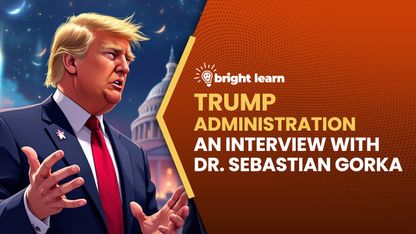
The study by RAND shows what most other studies have found: A sharp decrease in opioid-related death up until around 2010. Rosalie Liccardo Pacula, co-author of the study and co-director of the RAND Drug Policy Research Center, commented, "Our findings are consistent with previous studies showing an association between the legalization of medical marijuana and lower deaths from overdoses of opioids."
But after 2010, something changed -- and that "something" was regulations.
Pacula explained, "However, our findings show that the mechanism for this was loosely regulated medical marijuana dispensaries, and that the association between these laws and opioid mortality has declined over time as state laws have more tightly regulated medical dispensaries and the opioid crisis shifted from prescription opioids to heroin and fentanyl."
It would seem self-evident that an increase in regulations would ultimately decrease patient access to medical marijuana. However, the latter contention is a bit misleading: Past research by the very same National Institute on Drug Abuse, which supported the study, has shown that an estimated 80 percent of people who are using heroin started off with a prescription opioid.
If 80 percent of people struggling with a heroin addiction started off misusing a prescription opioid, are the prescriptions not ultimately responsible? As David Powell, the study' lead author reportedly commented, the opioid epidemic is shifting -- at least in part -- because patients who've become addicted to opioids are turning to the streets to get their fix, as doctors dial back the amount of opiates they prescribe.
And let's face it: You'd be hard-pressed to get a medical marijuana prescription as an opioid addict under current regulations. Even if you're not an addict, stricter regulations have likely diminished access to cannabis for patients struggling to cope with pain. States with medical marijuana laws have a set list of approved conditions -- and if your condition isn't on the list, you're probably out of luck.
In some states, patients suffering from chronic pain might even have to try using opiates before being given to access to medical marijuana -- even though the pharmaceutical industry itself has admitted that opiates are not an effective solution for chronic pain. For example, Pennsylvania's regulations state medical marijuana can only be prescribed in the instance of "severe chronic or intractable pain of neuropathic origin or severe chronic or intractable pain in which conventional therapeutic intervention and opiate therapy is contraindicated or ineffective."
Ultimately, the big problem is easy to see: Regulations. When medical cannabis was more loosely regulated, the reduction in opioid-related deaths was astounding. In states where medical cannabis was readily accessible, opioid-related deaths decreased by nearly 25 percent, and overdose-related hospitalizations decreased by 13 percent. These numbers are nothing to sneeze at when upwards of 91 people a day are dying thanks to opioids.
While the epidemic may be shifting away from Big Pharma's cash cow, the prescription opiate, the fact remains that the industry has been doing everything in its power to restrict access to medical marijuana. The industry has spent $880 million to fight the legalization of medical cannabis and to prevent opiates from becoming more strictly regulated. Even though their drugs are literally killing people, Big Pharma wants to protect their profits by keeping a safer alternative out of reach.
Is medical marijuana actually ineffective against the opioid epidemic -- or are needlessly strict regulations (which may or may not be tainted by Big Pharma's influence) keeping the opioid crisis alive? You be the judge.
Sources for this article include:
Please contact us for more information.






















